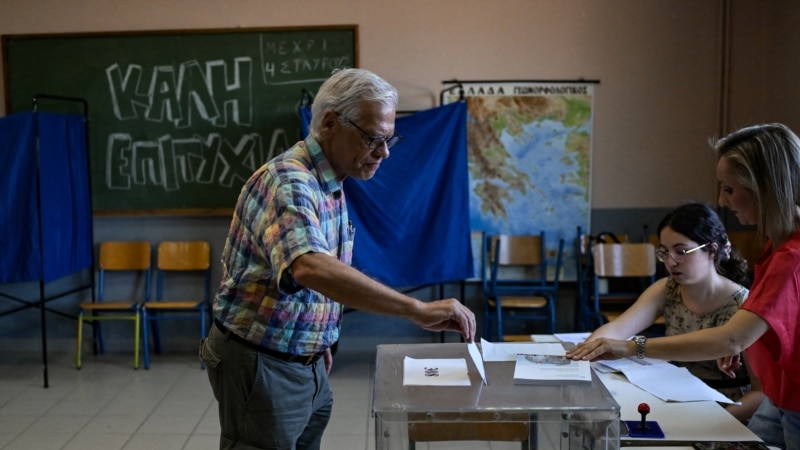Russia sustains influence operation to undermine the integrity of European Parliament elections
The recent elections to the European Parliament, a legislative body of the European Union, saw voters in 27 member countries elect 720 representatives from hundreds of political parties and a broad ideological spectrum.
While the governing centrist coalition will remain in power for the next five years, far-right parties made gains in several states, particularly France and Germany. Liberal and Green parties fared less well at the polls.
European intelligence accused Moscow of supporting pro-Russian candidates, many on the far right of the political spectrum, but also some on the far left, among other influence operations.
Moscow, in turn, has tried to undermine the democratic legitimacy of the elections.
Russian officials and state media spun the election results as lacking legitimacy and politically irrelevant.
The Kremlin and its leading analysts claimed the votes showed the citizens’ dissatisfaction with the Brussels’ “Russophobic policies” and its support for Ukraine.
Russian Foreign Ministry spokeswoman Maria Zakharova painted the EU plebiscite as unfree and unfair.
“We have to say that the European elections took place under conditions of severe restrictions, lack of fair competition, cleansing of the information field from alternative sources of information and rampant anti-Russian campaign,” Zakharova said on June 10.
The claim is false.
The elections saw a large number of candidates participating in a political field as diverse as the EU.
More than a half of Europe’s eligible 361 million-plus voters turned out to vote in the elections organized by the national authorities of each state. The Organization for Security and Cooperation in Europe Office for Democratic Institutions and Human Rights (ODIHR) said the vote was “genuinely competitive” and “professionally organized.”
While European political parties play an important role in the process, the ODIHR noted competition was “exclusively among national parties and candidates within their constituencies,” reflecting the “diverse political landscape among member states.”
The ODIHR said voters across the EU have got to choose from 16,000 candidates and 530 party and independent lists, offering a “wide choice of genuine political alternatives.”
While the media landscape across the 27-member bloc is highly diverse, with some states ranking much higher than others in terms of a free and pluralistic press, media freedom and pluralism are enshrined in the Charter of Fundamental Rights of the European Union.
Still, the Berlin-based Civil Liberties Union for Europe warned that “media freedom and pluralism still stand perilously close to the breaking point in many EU countries,” often due to the actions of national governments.
European leaders have thusly beefed-up efforts to ensure media freedoms across the bloc.
That includes the adoption of the European Media Freedom Act in March, intended to “guarantee the right of citizens to access free and plural information,” and the adoption of the Anti-SLAPP directive, intended to protect journalists and human rights defenders from malicious cross-border lawsuits intended to silence them.
Zakharova’s allegation that the “information field had been cleansed of “alternative sources of information” likely references Europe’s banning of four Russian-state propaganda outlets —the Voice of Europe, RIA Novosti, Izvestia and Rossiyskaya Gazeta — weeks before the election.
The EU linked those outlets to Russia’s “systematic, international campaign of media and information manipulation” intended “to justify and support its full-scale aggression against Ukraine, and to enhance its strategy of destabilization of its neighboring countries, and of the EU and its member states.”
The EU said Russian “propaganda, information manipulation and interference activities” particularly targeted European political parties “during election periods.”
Correspondingly, Newsguard, an information analysis company, reported a surge in EU-related false claims online in the weeks leading up to the vote. Those false claims targeted EU institutions, policies, and representatives, with the aim of “sowing distrust among voters and delegitimizing the vote,” Newsguard said.
European Intelligence sources told the Washington Post that Russian propaganda operatives used the Voice of Europe to funnel up to a million euros a month to dozens of far-right politicians in more than five countries “to plant Kremlin propaganda in Western media that would sow division in Europe and bolster the position of pro-Russian candidates” in the European Parliament elections.
The European Parliament is investigating allegations against its members suspected of accepting payments to spread pro-Russian disinformation.
Leaked Kremlin documents showed Viktor Medvedchuk, a pro-Russia Ukrainian business magnate with close ties to Russian President Vladimir Putin, worked with the Kremlin to establish the Voice of Europe. Ending aid to Ukraine was top on the outlet’s agenda.
Czech authorities sanctioned Medvedchuk for using Voice of Europe “to run a Russian influence operation.”
Artem Marchevsky, who ran the Voice of Europe, frequently met with far-right politicians across Europe. EU later sanctioned Marchevsky for his role in the project.
A senior European intelligence official told the Post that the Kremlin creates entities like the Voice of Europe to help “regain ground” on the influence operation front after Europe expelled dozens of Russian intelligence officers following Russia’s full-fledged invasion of Ukraine.
A U.S. intelligence assessment found that Moscow had “engaged in a concerted effort … to undermine public confidence in at least 11 elections across nine democracies” using internet trolls, social media influencers, proxy websites linked to Russian intelligence, and even Russian state-run media channels like RT and Sputnik, VOA reported.
Moscow denied the allegations.




